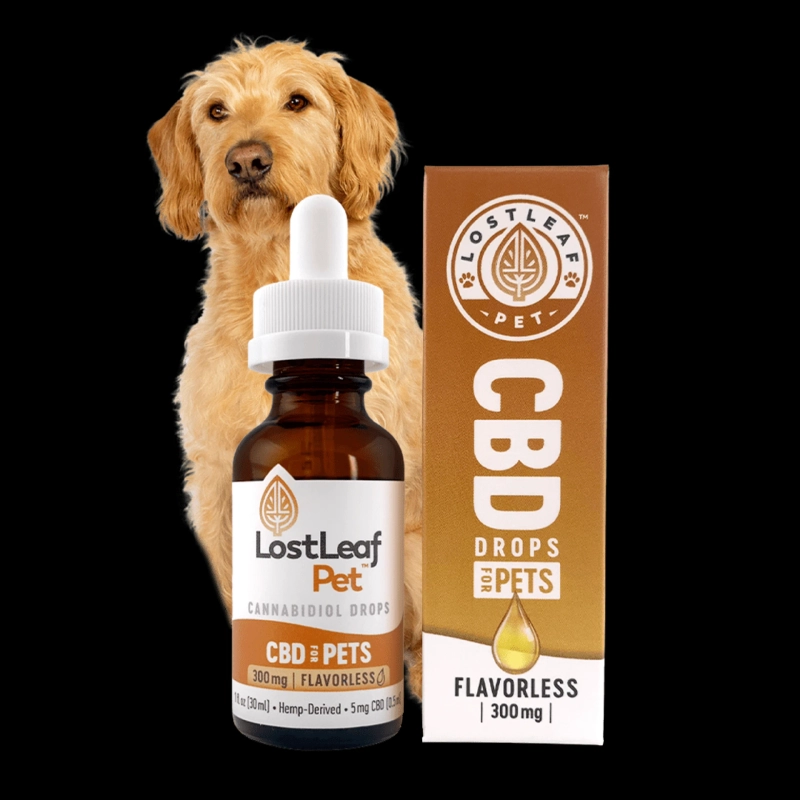Introduction
We want our pets to be as healthy and happy as possible as pet owners. Traditional veterinary medicine has limitations, which is why many pet owners are looking to alternative therapies to assist manage their pets' health challenges. CBD (cannabidiol), a non-psychoactive chemical found in the cannabis plant, is one of the most popular alternative medicines for dogs. We will go over all you need to know about CBD for pets, including its possible advantages, dosage, and negative effects, in this article.
What is CBD?
CBD is an organic substance present in the cannabis plant. Unlike THC (tetrahydrocannabinol), the psychoactive chemical that causes individuals to become "high," CBD has no mind-altering effects. Instead, it has been demonstrated to have a variety of possible therapeutic effects, such as pain relief, anxiety reduction, and inflammation reduction.
CBD for Pets: The Benefits
There is growing evidence to suggest that CBD may be beneficial for pets with a range of health issues. Here are some of the potential benefits of CBD for pets:
Pain Management
One of the most well-known benefits of CBD for pets is its ability to help manage pain. Studies have shown that CBD can help reduce pain and inflammation in dogs with osteoarthritis, a common condition that causes joint pain and stiffness.
Anxiety Reduction
Anxiety is a common issue in pets, especially dogs. CBD has been shown to have anxiolytic properties, meaning it can help reduce anxiety in pets. It may be especially helpful for pets who suffer from separation anxiety or noise phobias.
Seizure Control
CBD has also been shown to have potential seizure-controlling properties. Studies have found that CBD can help reduce the frequency and severity of seizures in pets with epilepsy.
Skin Irritation
CBD has anti-inflammatory properties that may be beneficial for pets with skin irritations and allergies. It may help soothe itchy skin and reduce redness and inflammation.
Other Potential Benefits
In addition to these benefits, there is also some evidence to suggest that CBD may have potential benefits for pets with other health issues, such as cancer, arthritis, and digestive disorders. However, more research is needed in these areas.
How to Give CBD to Your Pet
There are several ways to give CBD to your pet, including:
CBD Oil Tinctures
CBD oil tinctures are a popular option for giving CBD to pets. They can be added to food or given directly to the pet's mouth. CBD oil tinctures are available in a range of strengths, so it's important to choose the right one for your pet's needs.
CBD Treats
CBD treats are another popular option for giving CBD to pets. They come in a variety of flavors and can be given as a snack or reward. CBD treats are a convenient option for pets who may not be willing to take CBD oil for pets.
CBD Topicals
CBD topicals, such as creams and balms, can be applied directly to the pet's skin. They may be especially helpful for pets with skin irritations or allergies.
CBD Dosage for Pets
Determining the correct dosage of CBD for your pet can be challenging, as it depends on a variety of factors, such as the pet's weight, the potency of the CBD product, and the pet's individual needs. It's important to start with a low dosage and gradually increase it until you find the right amount for your pet.
As a general guideline, most pet owners start with a dose of 1-2 mg of CBD per 10 pounds of body weight. However, this may vary depending on the product and the pet's individual needs. It's important to consult with a veterinarian before giving your pet CBD to ensure that it's safe and effective.
CBD Side Effects for Pets
While CBD is usually thought to be safe for pets, there are a few possible adverse effects to be aware of. Dry mouth, diarrhoea, and changes in appetite or behaviour are examples. CBD may potentially induce seizures or other significant side effects in rare circumstances.
If you observe any strange symptoms in your pet after administering CBD, discontinue use and speak with a veterinarian immediately.
Conclusion
CBD has showed potential as a natural medicine for pets suffering from a variety of medical conditions. However, when providing CBD to your pet, use caution and contact with a veterinarian before beginning any new treatment. CBD may be a safe and effective approach to help manage your pet's pain, anxiety, and other health issues with the correct dosage and product.


